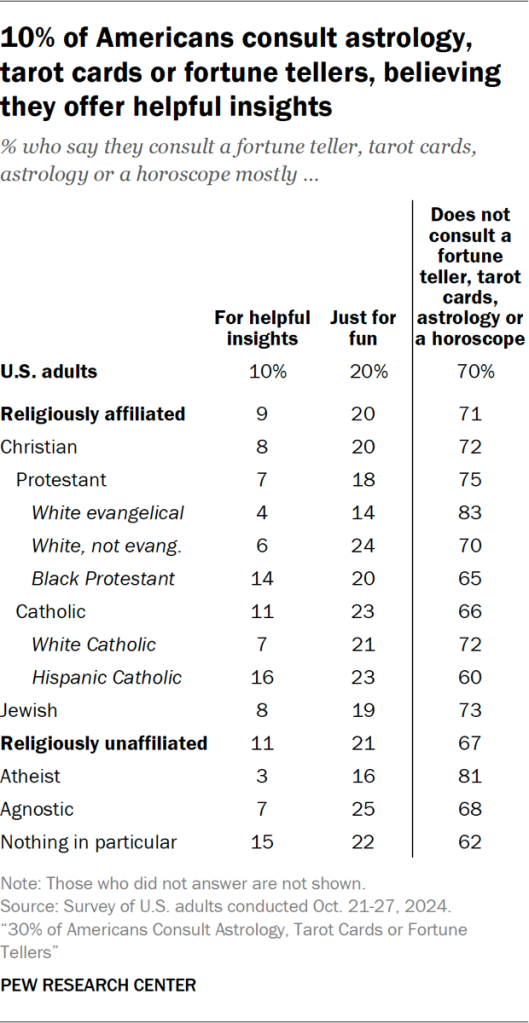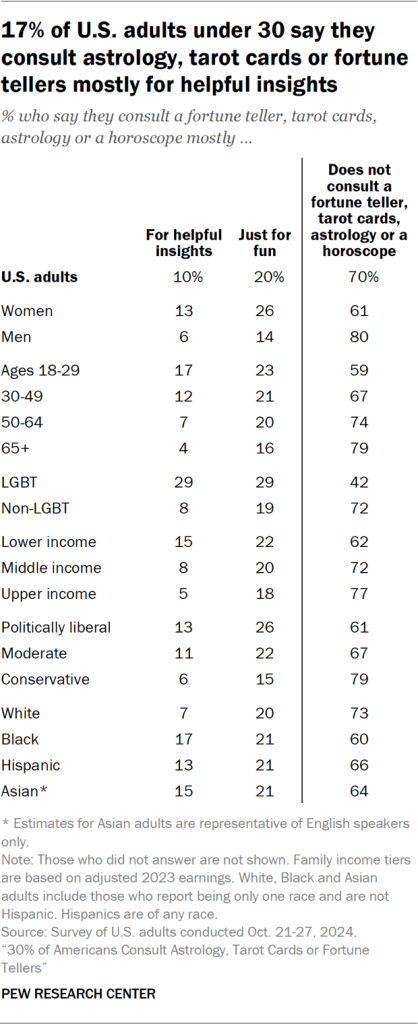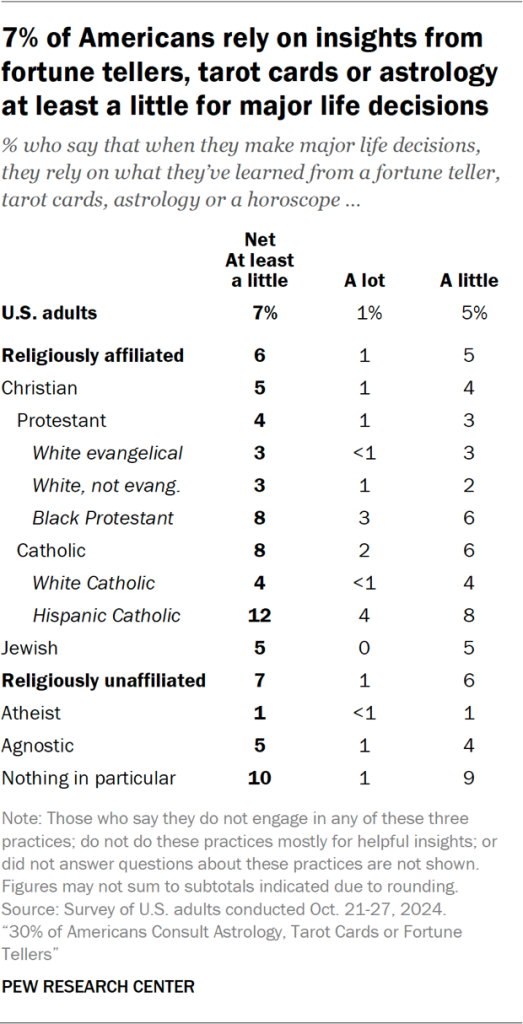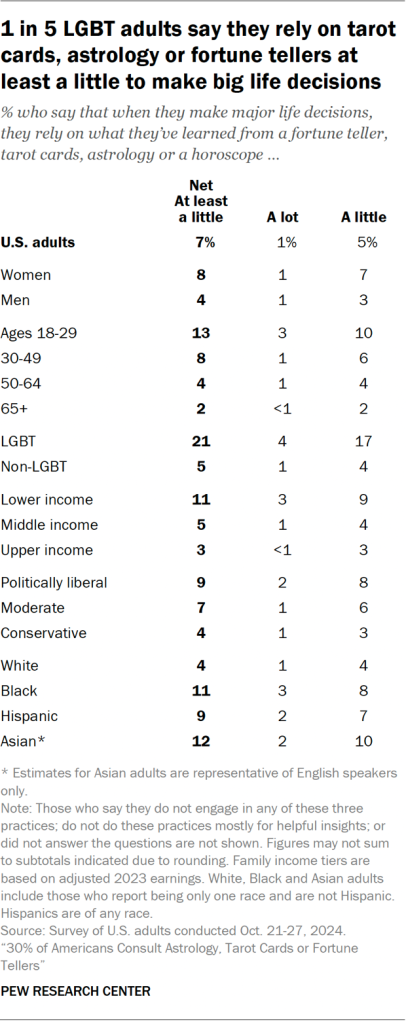Overall, 16% of Hispanic Catholics and 14% of Black Protestants say they engage in these practices mostly for helpful insights and not just for fun.  When asked why they take part in these practices, LGBT adults once again stand out. They are the most likely of all the demographic subgroups analyzed in the survey to say they consult fortune tellers, tarot cards or horoscopes to obtain helpful insights (29% do this). Nearly one-in-five Black Americans and Americans ages 18 to 29 also say they engage in these practices for helpful insights.  Making major life decisions based on these practicesRespondents who said they use at least one of these three practices mostly to gain helpful insights were asked an additional question: “When you make major decisions about your life, how much do you rely on what you’ve learned from a fortune teller, tarot cards, astrology or a horoscope?” The response options were “A lot,” “A little” or “Not at all.”  Just 1% of Americans say they rely on insights from these practices a lot when making major life decisions, and an additional 5% say they rely on them a little.  Hispanic Catholics (12%) are more likely than most other religious groups to say they rely on insights from these practices at least a little when making major life decisions. About one-in-five LGBT adults (21%) say that when they make major life decisions, they rely at least a little on what they’ve learned from a fortune teller, tarot cards, astrology or a horoscope. This is considerably larger than the share of any other demographic subgroup that says this. Younger Americans (13%), people with lower incomes (11%) and Americans who are ideologically liberal (9%) are somewhat more likely than their counterparts (i.e., older, upper-income and ideologically conservative Americans, respectively) to say they rely on insights from a fortune teller, tarot cards, astrology or a horoscope when making major life decisions. Likewise, Asian (12%), Black (11%) and Hispanic (9%) Americans are somewhat more likely than White Americans (4%) to rely on insights from these practices when making major life decisions. |
